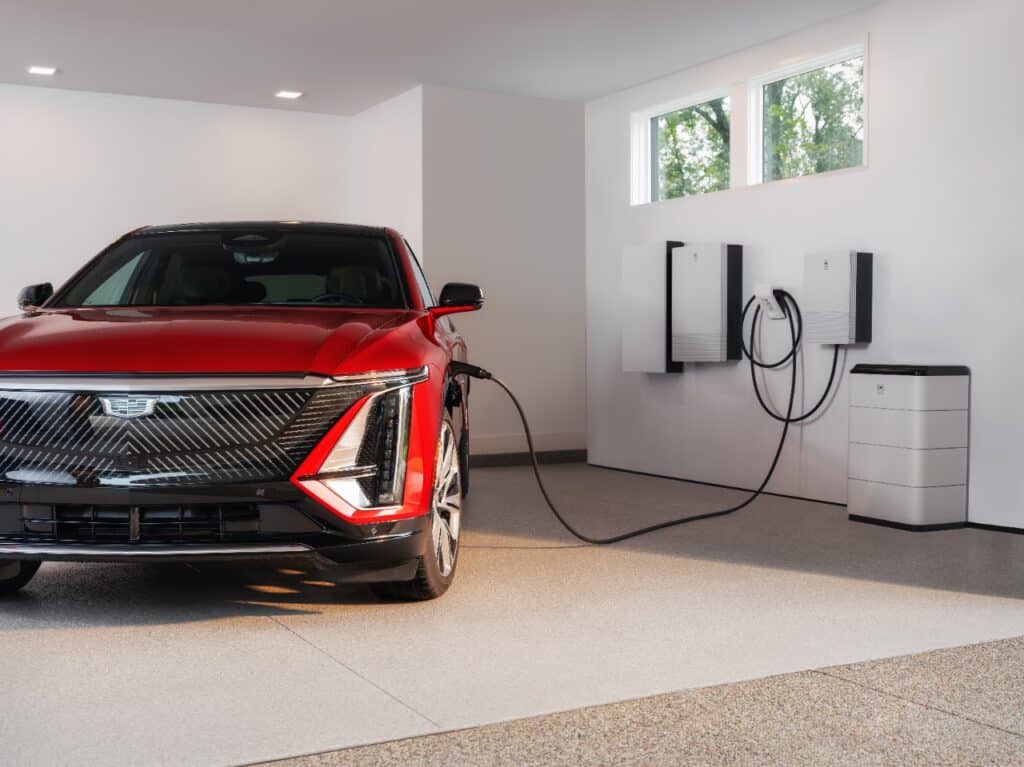EV Sales Gains Lead Most Automakers to a Strong 2024 Finish in America
The New York Times reported that in the final quarter of 2024, General Motors (GM) emerged as the biggest winner in U.S. vehicle sales, with a remarkable 21% increase in sales, reaching over 755,000 cars and light trucks. GM’s electric vehicle (EV) sales saw an impressive surge, more than doubling to nearly 44,000, securing the company’s position as the second-largest EV seller in the U.S. behind Tesla.
Other automakers also experienced strong sales growth during the period. Ford Motor’s sales rose by nearly 9%, totaling over 530,000 vehicles. Ford’s EV sales saw a 16% increase, reaching more than 30,000 units. Honda Motor recorded a 9% gain in sales, while both Hyundai and Nissan reported a 10% increase in their sales figures. Volkswagen sales increased 15.2% YoY compared to 2023, to 379,178, units.
Cox Automotive said it expected auto sales to grow 2.8 percent in 2025, to 16.3 million cars and trucks. Jonathan Smoke, Cox’s chief economist, said consumer sentiment, wages and other economic factors were adding to demand.
“Wages are growing, vehicle incentives have risen, loan approve rates are up,” he said. “As we enter 2025, momentum is back on our side.”
For the full year of 2024, the industry sold just under 16 million cars and trucks, according to Cox, an increase of about 2 percent from 2023. G.M. was the largest vehicle producer, having sold 2.7 million vehicles, followed by Toyota with sales of 2.3 million cars and trucks. Ford trailed the top two with 2.1 million.
Toyota notched a 3.7% sales gain year-over-year in the U.S., boosted by steady increases vehicles such as the Camry and RAV4 SUV, as well as significant gains for hybrid vehicles. Reuters reported last year that the automaker is potentially converting all of its lineup into hybrid-only models.
“For hybrids, we’re sold out – customers want them, we can’t get enough of them,” said David Christ, head of sales and marketing for Toyota in North America.
Cox said automakers sold 1.3 million E.V.s in the US in 2024, 8 percent of all new vehicle purchases, which is up from 1.2 million in 2023. Tesla was the top seller, accounting for just under half of all US E.V. sales.

In 2024, sales of electric vehicles (EVs) grew modestly for much of the year due to consumer concerns about their higher prices compared to traditional gas-powered vehicles, as well as challenges related to charging infrastructure. However, in the fourth quarter, EV sales experienced a significant surge, increasing by about 12% to 356,000 vehicles. This growth was fueled by lower interest rates, as well as attractive incentives and discount plans offered by automakers.
For instance, Kia offered two-year leases on its EV6 for just $159 per month. Ford also incentivized customers by providing free home charging stations and installation when purchasing or leasing one of its electric models.
Analysts suggested that the year-end sales jump might have been influenced by the uncertainty surrounding the $7,500 federal tax credit for EVs, particularly as the President-elect indicated plans to eliminate the credit for electric vehicles. This potential policy change likely encouraged consumers to purchase EVs before the credit was potentially removed, further boosting sales during the fourth quarter.
“The incentives on E.V.s have been really good, but there may also have been some awareness among consumers that the tax credit could go away, and that may have helped bring people into the market,” said Jessica Caldwell, head of insights at Edmunds, another auto-industry researcher. “If we do get to the point where it definitely is going away, there could be a stronger rush to buy.”
The federal EV tax credit and EV subsidies are important because they are crucial to helping American automakers catch up to China and compete with China, by producing EVs, hybrids and gas cars made in America. EVinfo.net believes cutting the EV tax credit and EV subsidies are big mistakes that will cost many American jobs and create a tremendous drag on America’s economy.
The Losers in 2024
In 2024, Tesla, the leader in electric vehicles (EVs), saw a slight decline in its worldwide sales for the first time ever, marking its first annual drop amid increasing competition. Although Tesla does not provide regional breakdowns of its sales, Cox Automotive estimated a 6% drop in the automaker’s U.S. sales.
Other automakers faced challenges as well. Stellantis, the maker of Jeep, Chrysler, and Ram vehicles, saw its full-year results decrease 15% year over year. Despite these setbacks, automakers overall experienced strong performance in the U.S. during the final quarter of 2024, especially with the surge in demand for EVs.

Electric Vehicle Marketing Consultant, Writer and Editor. Publisher EVinfo.net.
Services